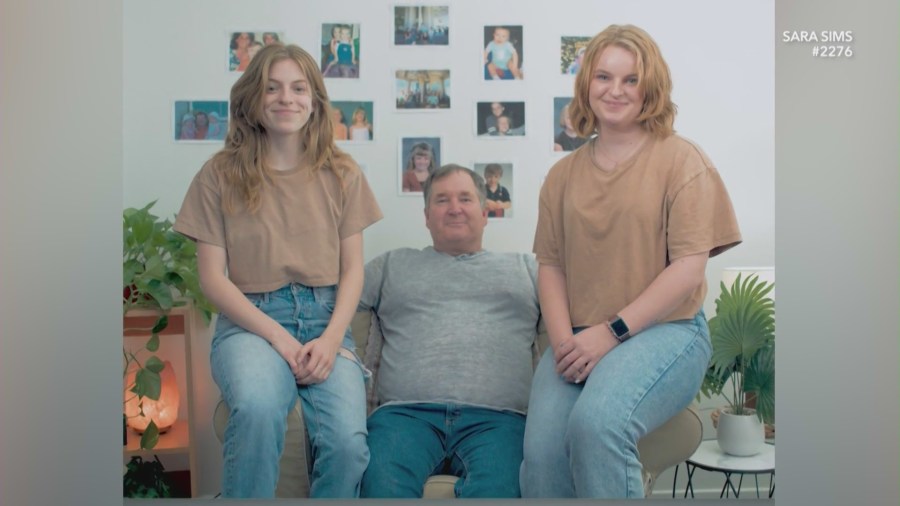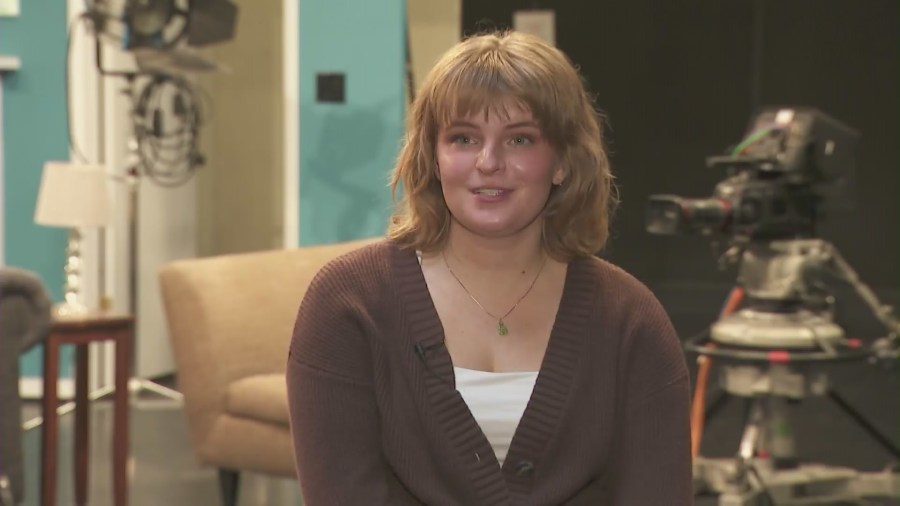A Cal State Northridge student’s documentary film led to the discovery of 10 half-siblings after she found out she was conceived using a sperm donor.
The film, “#2276,” directed by student Sara Sims, 22, is now a finalist in the prestigious nationwide Student Academy Awards.
“My film “#2276” is a story about me and my twin sister, Haley, finding out at age 17 that we, through an ancestry test, we were donor-conceived,” Sims explained.
Sims set out to make a documentary about her roots and along the way, she learned much more than she could’ve ever imagined about her story.
It all started with a project pitch for her senior thesis last fall.
“My senior thesis students come in on the first day of class, and each of them has to pitch a story, an idea for a documentary film that can be produced within that semester,” said CSUN Film & TV Arts Professor Judy Korin.
The students then voted on four films that would be produced that semester and Sims’ pitch received the most votes from her classmates.
“I think it was really because of the heart with which she told her own story,” Korin said of the positive response
“Our parents struggled with infertility for a long time and ended up having to use a sperm donor to conceive my sister and I,” Sims said.
After Sims and her sister learned their father was not their biological parent, they began asking questions.
“I didn’t want you girls to feel differently about me so we kept that up quite a bit,” Sara’s father is heard saying in the film. “And once you wait so long, then it makes it more difficult to tell you because it was a lie and I didn’t want to be caught in a lie.”
Surprised by the revelation, Sims dug deeper.
“We found out at age 17 that we also have about 10 half siblings around around the U.S.,”she said.
She also wasn’t alone. Her half-siblings had also been searching for answers about their roots. Sims eventually tracked down some of them and interviewed them for her documentary.

“I learned a lot about everybody, myself included,” she said. “A lot of realizations and we talk about a lot of our similarities between my half-siblings and I. Some of them I didn’t realize until we all, unprompted, started talking about them in our own separate interviews and I realized that we had way more in common than I had thought. I also learned a lot about my relationship with my dad and his relationship with my twin my sister as well and I think that has helped us bond a little bit.”
The film’s title, “#2276,” was inspired by the number assigned to her biological donor father.
“We value him so much as our father,” Sims says in the film. “He is the one that raised us. It doesn’t matter that we have a biological dad. He is our dad and that’s that.”
Her film is a reminder that no single family is the same and that family isn’t defined by one’s genes but is maintained through love and commitment.
Sims’ documentary was so well received that it was recognized by the Academy of Motion Picture Arts and Sciences as a semi-finalist in the student Oscars.
Sims’ film, “#2276,” can be viewed in its entirety on YouTube.














